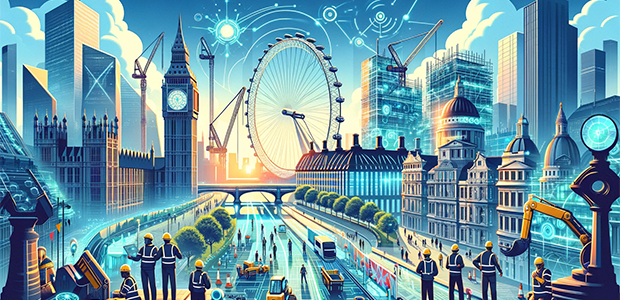
Deep tech startups are the architects of the UK’s next industrial revolution
After a challenging year or two, the roots of meaningful innovation are starting to take hold in traditional industries which will shape the way we work and live for decades.
The UK has always reacted in a positive way to challenges, with the most impressive solutions often emerging during more difficult periods. We’re now at a time where deep tech and hardware startups are not just participating but leading the charge towards the next industrial revolution. Artificial intelligence has punched through to front and centre not just in terms of generative software with the likes of OpenAI but also right down to the hardware that the models run on, with Nvidia. Many eyes are on what these advances will do for image and video creation and these stories certainly make stunning headlines, but for us, the revolution quietly happening in the background are just as interesting.
At Blackfinch we see thousands of early-stage, high-tech, investment opportunities a year, and we watch those quieter revolutions unfold in front of our eyes. By monitoring these trends we’ve been able to make investments that bring us closer to the action, and see first-hand, at board and company level, what a difference some of these technologies are making.
Sometimes it’s clearly a transformative step. Take Oculo for example, a high-tech portfolio company of ours in the construction industry. Often with major commercial and residential builds it's hard to document progress, project manage and be able to compare quality to the plan. Their approach, which combines AI, hardware, and computer vision, could significantly mitigate disasters like the Grenfell Tower fire by ensuring meticulous quality monitoring.
Utilising Oculo’s technology, a construction worker wears a helmet equipped with a 360-degree camera that records continuously as they walk around a site. This footage is cleverly processed and interpreted using AI, then converted into an accurate three-dimensional model. The model is then automatically compared to the architect’s design, which allows project managers to spot problems like a fixture at the wrong level or apertures not lining up. All of which save a fortune in future corrective action.
One of the real benefits of Oculo is the ability to document and evaluate in real time every step taken and materials used. Has the right fire door been installed? Is the cladding an approved type? Any doubt and the user can pull up the latest site survey photo from that exact spot to check, or even go back in time to see how it's changed.
The company goes one step further still, by linking this extensive data collection layer to the project management layer itself. We’ve all seen the Gantt charts that help managers run complex builds and how the bars change colour as site managers report progress. With Oculo that little coloured task box that has been reported as completed can be clicked and the photographic and CAD-level accurate model can be instantly reviewed. It’s surprising how often the reported progress deviates from reality.
So, in Oculo’s case, the application of several types of technology, from hardware, to computer vision and AI, has created a paradigm shift in the way a construction site can project manage, control quality and build to plan. Not as exciting as generative videos of paper planes over a forest canopy, but pretty exciting when construction efficiency improves, the customer gets the keys on time and the building has no hazardous defects in the materials used.
Alas, revolutions don’t always come in such a tangible form. When COVID hit, the sales teams for industrial and medical device manufacturers found themselves with a new problem, no longer were they able to hit the streets with the kit in the back of their cars. Zoom calls were great but how do you showcase physical products remotely? Dentistry equipment, bioreactors and office printers are all examples of customers that work with another of our portfolio companies, Martech3D.
Whilst online consumers have for years been able to view their new watch or car in 3D online, industrial and medical equipment manufacturers have been rather overlooked. Martech3D spotted this need and have responded with immersive online showroom technology which allows customers to properly explore, in a virtual setting, the equipment they are considering purchasing. Covers can be lifted, handles turned and a smartphone can be used to view the equipment in the customer’s own office or workshop.
What goes into this solution is again a symphony of technology. Accurate models of the equipment, its operation and surroundings, photorealistic textures and rendering, and a responsive online portal which is elegant and seamless. Indeed, the virtual showroom that Martech3D powered for Sharp Electronics is award winning. With this technology, the sales teams for these great companies can finally demonstrate large and complex machines virtually as if you are there in the room.
We’re seeing across industries quiet revolutions are happening, which are truly making a difference in the way that we work and live. These technologies span disciplines, and stretch all the way through the innovation stack, from the products themselves to how they are sold. Collectively, companies like Martech3D and Oculo and many more like them are architecting a new, improved future. They are absorbing the benefits of AI, adapting to the needs of the time and mixing all of this with a good old slice of UK industriousness and ingenuity.

